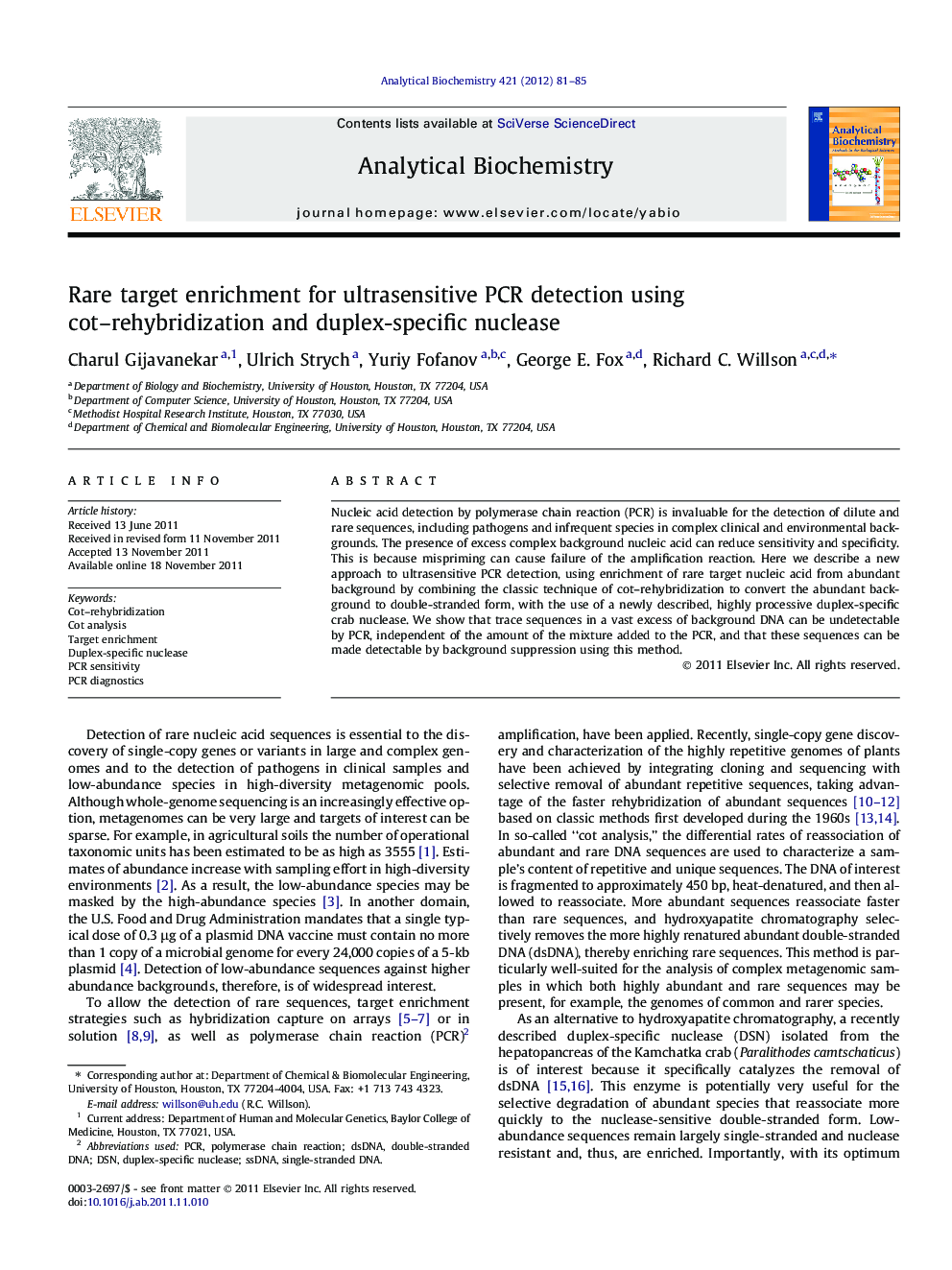| Article ID | Journal | Published Year | Pages | File Type |
|---|---|---|---|---|
| 1173250 | Analytical Biochemistry | 2012 | 5 Pages |
Nucleic acid detection by polymerase chain reaction (PCR) is invaluable for the detection of dilute and rare sequences, including pathogens and infrequent species in complex clinical and environmental backgrounds. The presence of excess complex background nucleic acid can reduce sensitivity and specificity. This is because mispriming can cause failure of the amplification reaction. Here we describe a new approach to ultrasensitive PCR detection, using enrichment of rare target nucleic acid from abundant background by combining the classic technique of cot–rehybridization to convert the abundant background to double-stranded form, with the use of a newly described, highly processive duplex-specific crab nuclease. We show that trace sequences in a vast excess of background DNA can be undetectable by PCR, independent of the amount of the mixture added to the PCR, and that these sequences can be made detectable by background suppression using this method.
